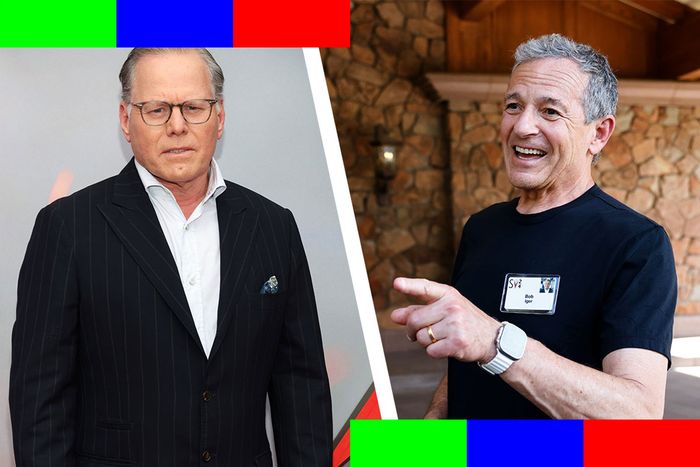
Disney and Warner Bros. Discovery both announced quarterly earnings this week, and the main takeaways from the two reports could not be more different. At the Mouse House, they were breaking out the extra fancy cheese to celebrate an important milestone: For the first time since jumping headfirst into the direct-to-consumer space five years ago, Disney’s streaming business turned a profit. It was pretty small, by Disney standards — $47 million — but CEO Bob Iger hit this goal a few months ahead of schedule, and after years of bleeding cash on streaming, any win on this front is worth noting. And while Disney reported some less upbeat news from its Parks division, its blockbuster machine is once again purring along, with Inside Out 2 and the new Deadpool movie dominating the box office.
Wall Street analyst Michael Nathanson this week argued that this theatrical success will have a halo effect that lifts Disney+, even suggesting that it might be time to start talking about another “Disney renaissance” at its studio division. “These theatrical hits are what keep Disney’s content flywheel spinning,” he said in a report to clients. The streaming availability of “the original Inside Out helped drive Disney+ sign-ups and viewing. In future quarters, these hit blockbusters should further benefit DTC plus Consumer Products, and eventually in Parks.” Now if Iger could just find a suitable successor, he might finally be able to retire in peace come 2026. (For more on that matter, check out this week’s episode of Land of the Giants: The Disney Dilemma, where we go deep on Disney’s succession problems.)
Someone else who probably should be considering retirement right now but almost certainly won’t — at least not voluntarily — is WBD’s David Zaslav. His company, which at this point might as well rename itself the Struggling Warner Bros. Discovery, lost $10 billion during its most recent financial quarter — most of which was chalked up to a $9.1 billion write-down related to its TV networks division. Zaslav & Co. blamed the numbers on the continued collapse of the cable business, but while there’s no doubt cable is hurting, WBD has also done a staggeringly efficient job of stripping its storied Turner cable networks of whatever value they have left.
CNN, TNT, Turner Movie Classics, Cartoon Network — all have wilted as Zaslav slashed budgets, fired staff, and reduced original programming. And then, in his latest masterstroke, Zaslav declared that TNT didn’t need the NBA to thrive, and then, after the NBA called his bluff and moved its business to NBCUniversal and Amazon, he decided to shell out what will probably be millions of dollars in legal fees to sue the NBA. You don’t need to be some sort of corporate genius to figure out why WBD’s stock price this week (at one point it fell to under $7) is half what it was a year ago, and just one-third of its value in spring 2022 (just shy of $25). Translation: WBD, which was worth about $50 billion when it debuted in 2022 (after merging with Zaslav’s Discovery Networks), is now valued at just under $19 billion. Even 2005 George W. Bush would have trouble praising this sort of performance.

